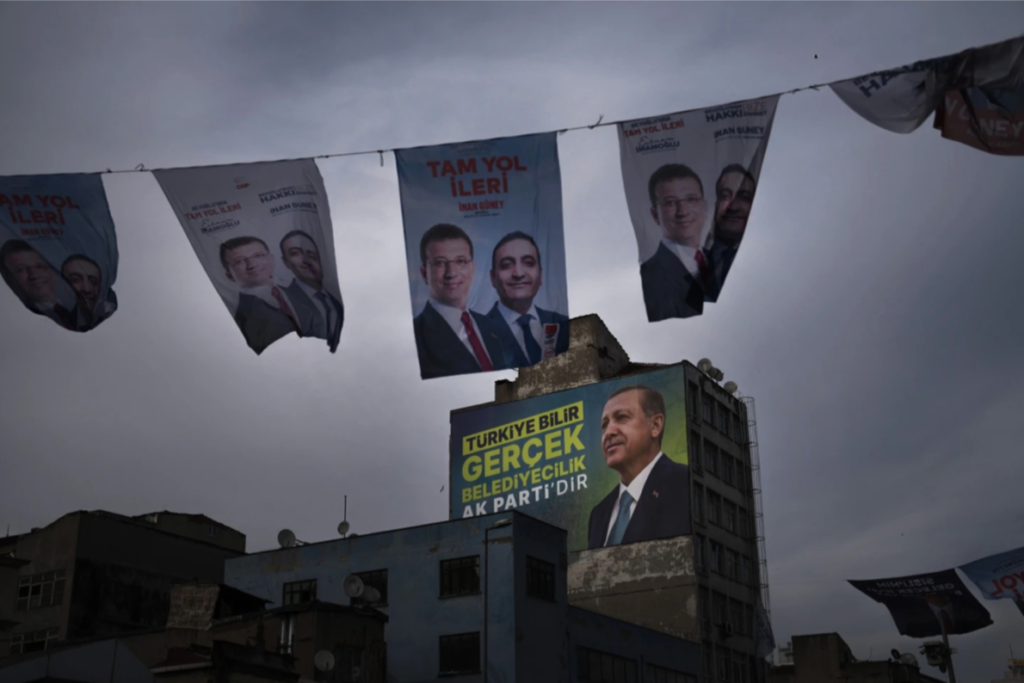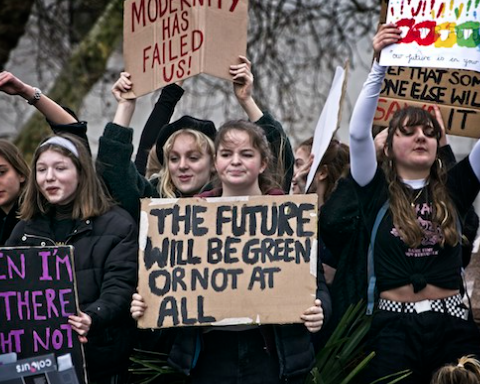By Zachary Leggio and Mayerlyn Rivera
Edition 4: March 25-March 31

Upcoming
Türkiye
The Republic of Türkiye, better known as Turkey, is holding local mayor elections on March 31 that could alter the course of the nation. Similar to the United States, national politics has trickled down to have a massive impact on local politics in Turkey, meaning that these mayoral elections act as a referendum on President Recep Tayyip Erdoğan’s government. These elections are opportunities for the ruling parties to consolidate power at the local level, but they also allow voters to air their grievances with those in power.
The major players in this election are the ruling People’s Alliance and the Nation Alliance, the now-fractured opposition alliance, which is comprised of the Republican People’s Party (CHP), The Good Party (IP), and various Kurdish-aligned parties. The People’s Alliance is primarily composed of Erdoğan’s Justice and Development Party (AK Party), as well as the Nationalist Movement Party (MHP). The AK Party and Erdoğan won the May 2023 presidential and parliamentary elections, making this year’s local elections a test of the support for the People’s Alliance in cities, namely Istanbul and Ankara. Following the Nation Alliance’s loss in 2023, Kemal Kılıçdaroğlu stepped down after unsuccessfully leading the opposition since 2010, which led to a complete breakdown in the group’s leadership and organization. This has created chaos in the CHP’s campaigning at the local level and resulted in a major fracture in the Nation Alliance, with Kurdish parties choosing to field their own candidates and drawing votes away from CHP candidates.
Significant Nation Alliance wins in Ankara and Istanbul would allow the opposition to cling to the little power and influence they still possess, but the People’s Alliance winning would lead to further consolidation of power by the government. A People’s Alliance victory is also likely to embolden Erdoğan to further attack Turkey’s constitutional court and possibly introduce an entirely new constitution that could extend his tenure as president.
Recaps
Senegal
Senegal’s contentious presidential elections took place on March 24, after deadly civil unrest and several delays by incumbent President Macky Sall. The race was crowded, with 19 approved candidates, which made a subsequent run-off election likely. However, opposition candidate Bassirou Diomaye Faye won with around 53%, according to preliminary results. The official results will not be announced until March 29, but many candidates, including Faye’s strongest opponent Amadou Ba, have conceded the race, and President Sall congratulated Faye and Senegal’s democracy in general.
Faye, who will be Africa’s youngest president at only 44 years old, campaigned on a set of lofty promises and sweeping reforms. He hopes to negotiate new gas, oil, fishing, and defense deals, as well as end Senegal’s use of the CFA franc, which he claims has helped France stunt the growth of western Africa. He ran with a professional background as a tax collector and touts his commitment to village life, giving him a deep distrust of Senegal’s career politicians and placing fighting corruption at the top of his agenda. His outsider nature has drawn criticism, however, as he has been called overly ambitious and naive. Regardless, this election was a remarkable turnaround for Senegal, which academics feared might succumb to the democratic erosion that has become a common occurrence in Africa. Sall has continuously expressed his commitment to leaving office on April 2, and this official transfer of power will be applauded by the entire international community.
Slovakia
Slovakia’s March 23 election resulted in no candidate achieving 50% of votes, resulting in a run-off scheduled for April 6. Pro-European Union candidate and career diplomat Ivan Korčok won the plurality, with 42.9% of the vote. Peter Pellegrini, an ally of Slovakia’s populist and pro-Russia Prime Minister Robert Fico, came in second place with 37.1% of the vote. Socially far-right former judge Štefan Harabin came in third place, securing 11.75% of the vote.
Harabin’s supporters are most likely to vote with Pellegrini in the run-off because their anti-western and socially conservative views align closer to Pellegrini’s platform than Korčok’s western-friendly stance. Korčok will be campaigning fervidly leading up to the election in an effort to prove to moderates that he will be able to balance Fico’s conservative parliament. Both candidates will be spending these next two weeks attempting to present themselves as unifying candidates to mend a currently divided Slovakia.
Photo Credit: https://apnews.com/article/turkey-erdogan-local-elections-things-to-know-1cad0f209f0aed8c78f41307b52d4c2d

